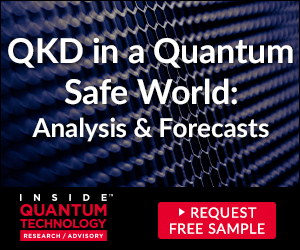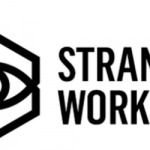Defense advisers warn quantum tech still too young to warrant export controls

(NextGov) Mariam Baksh details findings from a report commissioned by the Pentagon to provide insight into how various federal agencies fit into big-picture policy considerations on the emerging national security issue. Inside Quantum Technology summarizes here.
The U.S. still has too much to gain from China and the rest of the world for controlling exports of key quantum-science advancing technologies to make sense, according to a new report from the RAND Corporation that was sponsored from within the Office of the Undersecretary of Defense for Research and Engineering .
The report provides a more nuanced review of what’s often simply described as a competition between China and the U.S. It also points to roles for various specific agencies as the issue advances.
Commerce and Defense are both part of a powerful interagency group—the Committee on Foreign Investment in the United States, or CFIUS—which makes export-control related decisions and is also the wheelhouse for the kind of financial and other resource tracking activities recommended by the report. The report suggests some complicated considerations for the CFIUS agency heads, including those from Treasury, Justice, State and others.
“Export controls would prematurely limit the exchange of scientific ideas, slowing down technological progress. Having a broad base of experts (including outside the United States) experimenting with early-stage prototypes could speed up the discovery of useful defense-related applications,” Parker and his colleagues write. “Moreover, export controls could threaten the financial health of small U.S. start-ups that are advancing the state of the art in quantum technology, as it is not clear that there will be enough domestic demand to support them.”
On the government research and development front, the Department of Energy has control over an important chunk of about $700 million agencies were collectively on track to spend advancing quantum technology in fiscal year 2021, as the report was being written. The RAND report suggests the government continue to diversify its investment broadly across the quantum technology fields it examined, including quantum communications, where China is leading the way.
Other recommendations from the report include continuing to broadly fund research and development—considering where the government can complement what’s already being done by the private sector—monitoring and protecting key U.S. quantum technology firms from cyber intrusion, monitoring the financial fitness and ownership of quantum start-ups, and tracking the global movement of critical components, materials, workers and final quantum technology products.
There’s definitely an element of competition to consider in shaping quantum-technology policy. The winner could not only know all the others’ secrets, they could also use exponential “quantum computing” speed to perform all manner of calculations and discover breakthrough pharmaceuticals. Another set of applications related to “quantum sensing” could make all the difference for self-driving cars, or those trying to predict and protect people from volcanic eruptions. The field of “quantum communications” could eventually change the internet itself, promising to make it virtually unhackable with quantum-based encryption methods.
The RAND report uses metrics like the quality and quantity of research and patents produced in each of these three areas—quantum computing, sensing and communications—to measure U.S. progress on quantum technology compared to China and other countries. It found the two countries are generally running neck and neck in front of other governments developing the tech. Although China is clearly ahead on quantum communications, the U.S. and Europe are clearly ahead on quantum sensing.

























